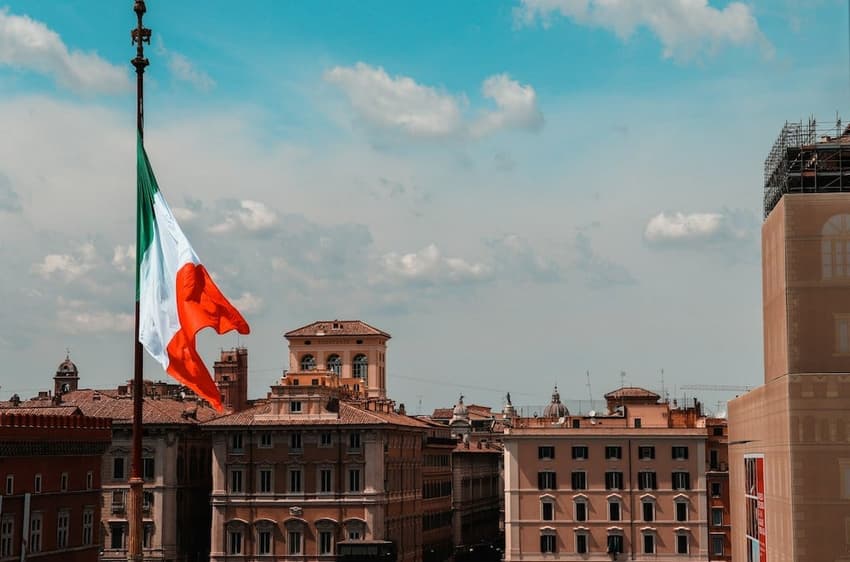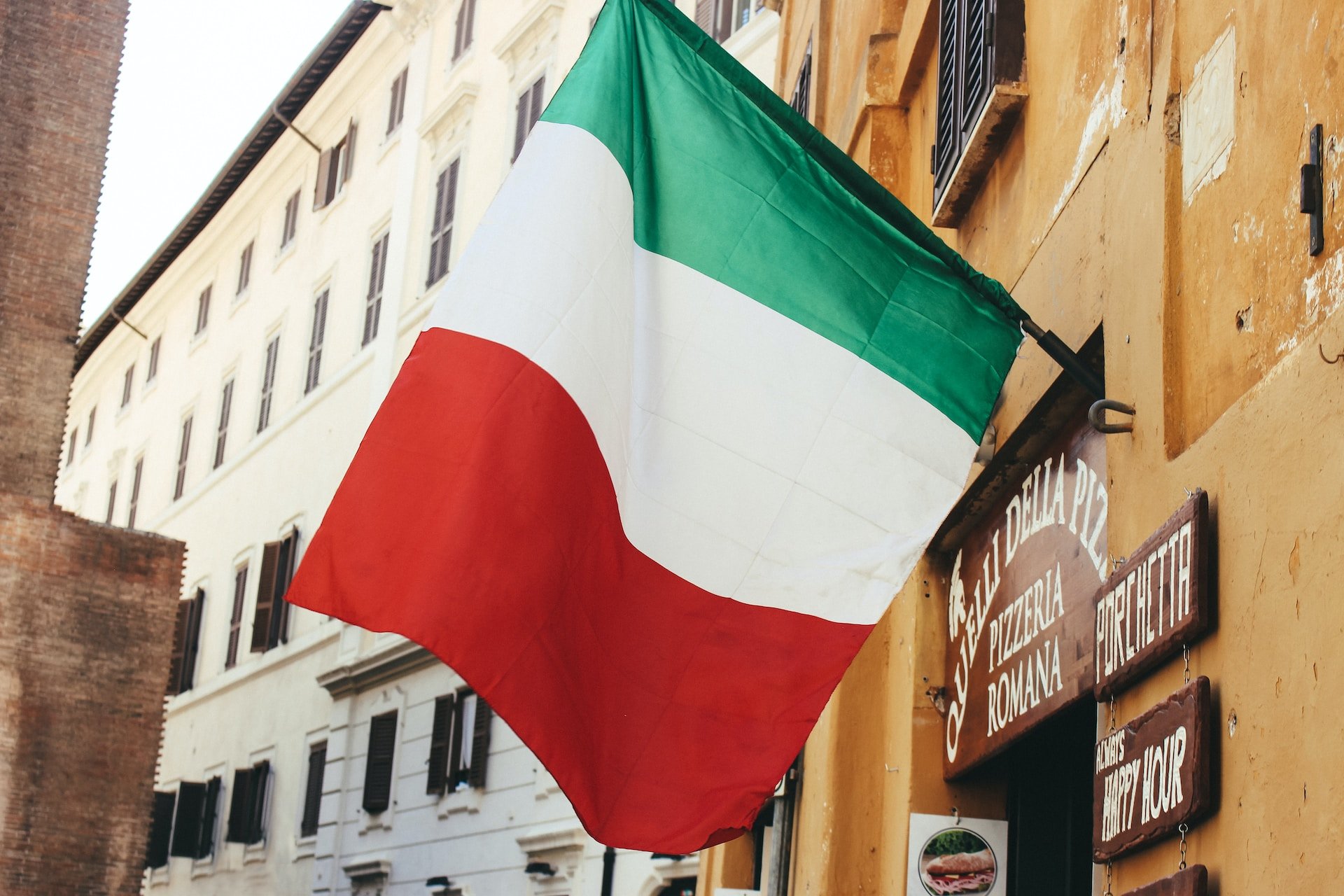EXPLAINED: Who is entitled to Italian citizenship by descent and how to apply for it

If you have Italian ancestry, you might be wondering if you're eligible for citizenship. But how do you know for sure, and where should you start?
Italy is fairly lenient when it comes to jure sanguinis, or ancestry-based, citizenship applications, allowing almost anyone with an Italian ancestor going back to the foundation of the Kingdom of Italy to apply.
There are still some hurdles to overcome, however, and the application process you'll need to follow varies depending on where you're based and who you're applying through.
Who can apply?
Currently, almost anyone who can prove they are directly descended from someone who was Italian in March 1861, when Italy officially became a country, is entitled to apply for Italian citizenship.
READ ALSO: An expert guide to getting Italian citizenship via ancestry
At the moment there's no generational limit, and you don't need to take an Italian language test - though a bill put forward by an Italian senator last year aims to change this.
You do need to be able to prove the line of descent with birth, marriage and death certificates for everyone in the chain.
You also need to make sure that the ancestor through whom you're applying didn't give up their Italian citizenship before 1912 (which is when Italy passed its first dual citizenship law), or before the next generation were born.
READ ALSO: What a law from 1912 means for your claim for Italian citizenship via ancestry

Ancestry can be fastest route when applying for Italian citizenship, but there's a lot to know about the process. Photo by Jametlene Reskp on Unsplash
Your ancestor doesn't need to have formally renounced their citizenship in order to have lost it - Italy didn't automatically allow dual citizenship until 1992, so most people who naturalised as a citizen of another country before then automatically lost their citizenship.
How to apply
If you live outside of Italy, in most cases you will need to apply through your nearest Italian consulate.
The majority of Italian consulates are currently experiencing significant backlogs, and it can take months or even years just to get an initial appointment, so you'll need to be patient.
READ ALSO: 'Next to impossible': How backlogs are delaying applications for Italian citizenship
If you're resident in Italy, you'll apply at your local comune (town hall), which is usually a much faster process.
Some people relocate to Italy just to speed up their citizenship application, though this is only an option for those with the time and resources.

If you're applying for Italian citizenship, there's a lot to consider. Photo by Vincenzo PINTO / AFP.
Anyone applying through a female ancestor who was born or had their children before 1948 is in a unique situation: you can't go through the consulate or the town hall, but must apply through Italy's court system instead.
READ ALSO: How the '1948 rule' could affect your Italian citizenship application
While this might sound a bit daunting, most cases reviewed by the courts are successful providing you have all your paperwork in order, and it's almost always quicker than applying through a consulate.
Some applicants frustrated with long consulate wait times have successfully applied to have the courts review their case in order to speed things up; you'll still need to start by applying to the consulate and make a strong case to the courts as to why they should take on your case.
The paperwork you'll need
For any application, you'll need birth, death and marriage certificates for everyone in the line of descent.
You will also need to apply for a 'Certificate of Non Naturalisation' or 'Certificate of Non-Existence' for your Italian ancestor from the national archives of whichever country they emigrated to, to prove they didn't naturalise as a foreign citizen.
READ ALSO: Five surprising things to know about applying for Italian citizenship via ancestry
If they did become a foreign citizen, you'll be issued instead with a Certificate of Naturalisation. You will probably still be eligible to apply for Italian citizenship, provided they didn't naturalise until after the next generation was born.
You'll then need to have all these documents apostilled and officially translated into Italian.
If you can't locate a birth certificate for someone in the chain, you might be able to track down their baptismal certificate from church archives: these are usually accepted as a substitute.
There are multiple Italian consultants these days who specialise in unearthing hard-to-find records and who can provide you with this service - for a fee.
Once you've submitted your application, you'll need to see whether you're asked to provide any more supporting information.
If not, all that remains is sit back and wait; hopefully, before too long, you'll be applying for that Italian passport.
Comments
See Also
Italy is fairly lenient when it comes to jure sanguinis, or ancestry-based, citizenship applications, allowing almost anyone with an Italian ancestor going back to the foundation of the Kingdom of Italy to apply.
There are still some hurdles to overcome, however, and the application process you'll need to follow varies depending on where you're based and who you're applying through.
Who can apply?
Currently, almost anyone who can prove they are directly descended from someone who was Italian in March 1861, when Italy officially became a country, is entitled to apply for Italian citizenship.
READ ALSO: An expert guide to getting Italian citizenship via ancestry
At the moment there's no generational limit, and you don't need to take an Italian language test - though a bill put forward by an Italian senator last year aims to change this.
You do need to be able to prove the line of descent with birth, marriage and death certificates for everyone in the chain.
You also need to make sure that the ancestor through whom you're applying didn't give up their Italian citizenship before 1912 (which is when Italy passed its first dual citizenship law), or before the next generation were born.
READ ALSO: What a law from 1912 means for your claim for Italian citizenship via ancestry

Your ancestor doesn't need to have formally renounced their citizenship in order to have lost it - Italy didn't automatically allow dual citizenship until 1992, so most people who naturalised as a citizen of another country before then automatically lost their citizenship.
How to apply
If you live outside of Italy, in most cases you will need to apply through your nearest Italian consulate.
The majority of Italian consulates are currently experiencing significant backlogs, and it can take months or even years just to get an initial appointment, so you'll need to be patient.
READ ALSO: 'Next to impossible': How backlogs are delaying applications for Italian citizenship
If you're resident in Italy, you'll apply at your local comune (town hall), which is usually a much faster process.
Some people relocate to Italy just to speed up their citizenship application, though this is only an option for those with the time and resources.

Anyone applying through a female ancestor who was born or had their children before 1948 is in a unique situation: you can't go through the consulate or the town hall, but must apply through Italy's court system instead.
READ ALSO: How the '1948 rule' could affect your Italian citizenship application
While this might sound a bit daunting, most cases reviewed by the courts are successful providing you have all your paperwork in order, and it's almost always quicker than applying through a consulate.
Some applicants frustrated with long consulate wait times have successfully applied to have the courts review their case in order to speed things up; you'll still need to start by applying to the consulate and make a strong case to the courts as to why they should take on your case.
The paperwork you'll need
For any application, you'll need birth, death and marriage certificates for everyone in the line of descent.
You will also need to apply for a 'Certificate of Non Naturalisation' or 'Certificate of Non-Existence' for your Italian ancestor from the national archives of whichever country they emigrated to, to prove they didn't naturalise as a foreign citizen.
READ ALSO: Five surprising things to know about applying for Italian citizenship via ancestry
If they did become a foreign citizen, you'll be issued instead with a Certificate of Naturalisation. You will probably still be eligible to apply for Italian citizenship, provided they didn't naturalise until after the next generation was born.
You'll then need to have all these documents apostilled and officially translated into Italian.
If you can't locate a birth certificate for someone in the chain, you might be able to track down their baptismal certificate from church archives: these are usually accepted as a substitute.
There are multiple Italian consultants these days who specialise in unearthing hard-to-find records and who can provide you with this service - for a fee.
Once you've submitted your application, you'll need to see whether you're asked to provide any more supporting information.
If not, all that remains is sit back and wait; hopefully, before too long, you'll be applying for that Italian passport.
Join the conversation in our comments section below. Share your own views and experience and if you have a question or suggestion for our journalists then email us at [email protected].
Please keep comments civil, constructive and on topic – and make sure to read our terms of use before getting involved.
Please log in here to leave a comment.